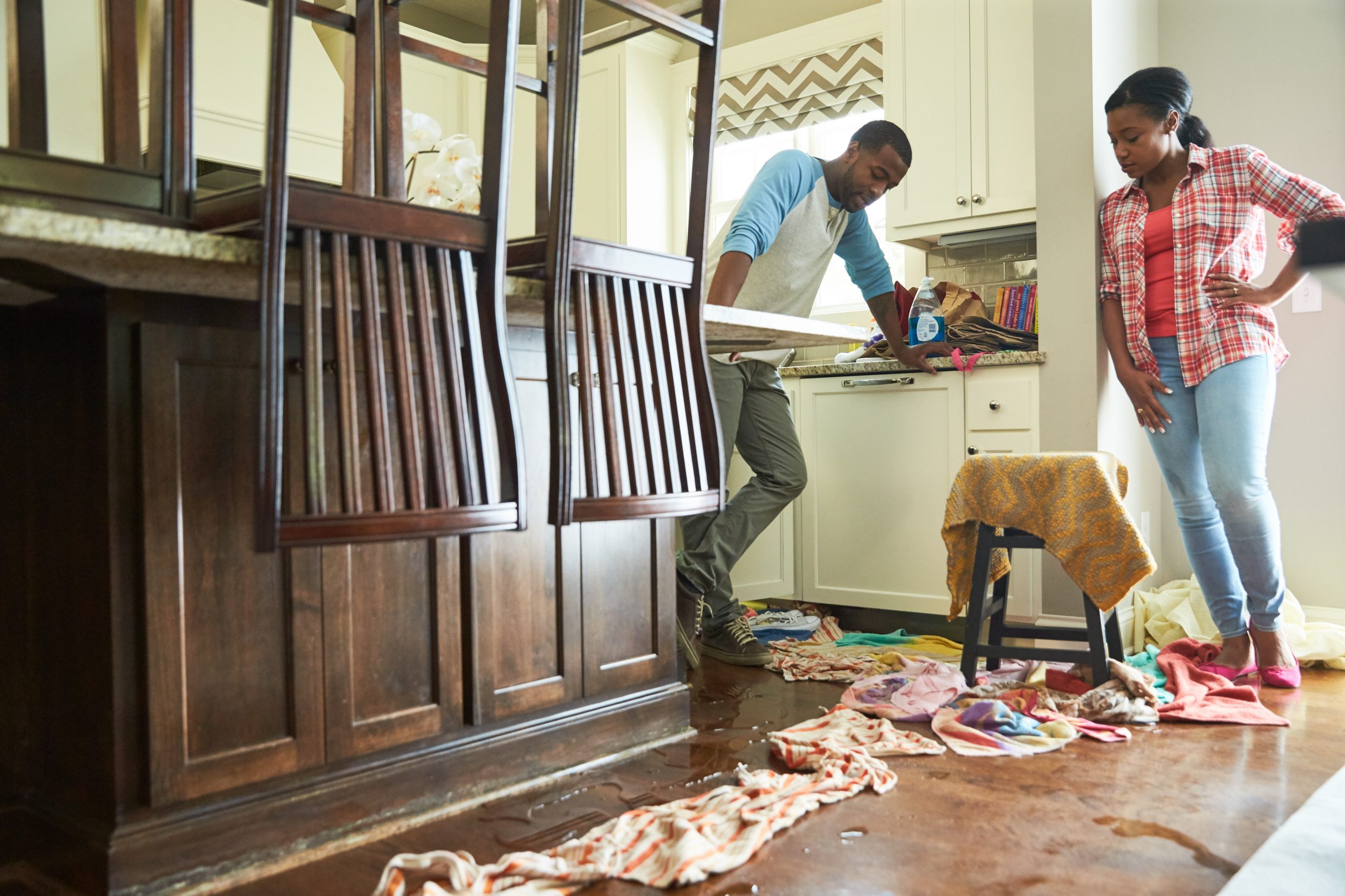Justin Stoltzfus
Water damage is a major concern for most property owners and renters. Whether your insurance covers the damage will depend on where the water comes from. In the property insurance industry, there’s a big difference between “rising” water and threats from above.
The cost of damage
The average home insurance claim for water damage was about $5,000 in 2007, according to the Insurance Information Institute. Water damage made up roughly 22 percent of all claims.
Water can soak personal possessions, spread germs, rot wood, and even spawn mold and mildew over time. Worse yet, it can be hard to track when a leak happens inside walls, below floors or in other hard-to-reach areas. For homeowners, there’s the fear of their biggest investment being devalued and even becoming unlivable. For bottom-floor renters in apartment complexes, there’s the horror of what happens after an upstairs neighbor lets the tub or toilet overflow.
Will my insurance cover me?
So, will your insurance company pay out when water destroys your home and belongings? According to the Insurance Institute, standard renter’s and home insurance policies usually cover water that comes from above (like rain damage). They also cover issues like burst pipes, melting ice and ceiling leaks. According to the Insurance Information Network of California, covered scenarios might include:
- Rain and hail damage after a storm smashes a window.
- Heavy rain soaking through your roof.
- Broken pipes that send water into your home.
However, when it comes to water that rises from the bottom up (flood water), your standard policy won’t cover you. Sewer backups also usually need their own extra insurance riders, according to the Insurance Information Institute. Even circumstances you think qualify as rain damage could actually be flood damage, according to the Insurance Information Network of California. For example, heavy rain filling your basement because the soil can’t absorb it fast enough would be considered flood damage by your insurer.
Because flooding is not covered by standard policies, those living in low-lying areas or flood plains likely will need separate flood insurance. Homeowners and renters can buy this coverage directly through the federal government’s National Flood Insurance Program.
Preventing water damage
Although flooding may be unavoidable, there are some things that property owners can do to prevent other kinds of water damage. The Insurance Information Institute offers a few tips:
- Inspect pipes and hoses regularly.
- Fix leaks quickly.
- Install backup prevention valves, sump pumps and other safeguards.
- Keep appliances reasonably up to date and properly functioning.
- Learn to shut off the water to your building, and have an emergency shut-off plan.
- Clean gutters annually, and install gutter guards.
Inspect your roof, gutters and downspouts for damage.

2 thoughts on “All water damage is not equal: What will your home insurance cover?”